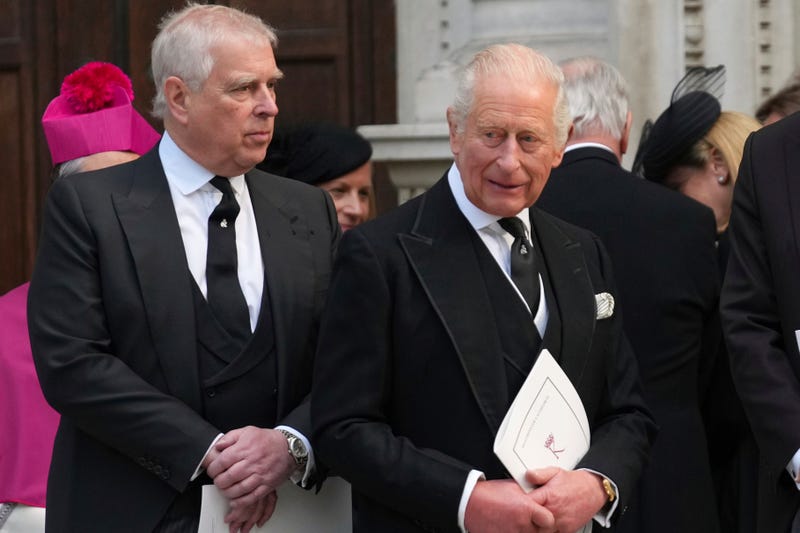
LONDON (AP) — He’s lost his titles, his house and his reputation, but the former Prince Andrew has gained a hyphen.
The disgraced royal is now known as Andrew Mountbatten-Windsor and not – as previously announced – Andrew Mountbatten Windsor.
The change makes the name’s style conform to the double-barreled surname chosen by the late Queen Elizabeth II for her descendants 65 years ago.
It combines the royal family’s name of Windsor, chosen by King George V in 1917, with Mountbatten, the surname of the queen’s husband, Prince Philip.
The queen had initially decided to use Windsor alone, leading her husband to complain that he was the only man in England not allowed to give his children his name.
Elizabeth relented, and in an official declaration on Feb. 8, 1960 — days before her son Andrew was born — said: “My descendants other than descendants enjoying the style title or attribute of Royal Highness and the titular dignity of Prince or Princess and female descendants who marry and their descendants shall bear the name of Mountbatten-Windsor.”
The hyphen has been added after palace officials studied the 1960 declaration.
King Charles III announced on Oct. 30 that he was removing his brother’s titles and evicting him from his royal residence near Windsor Castle over his relationship with sex offender Jeffrey Epstein.
Pressure had been growing on the palace to oust the 65-year-old prince from his Royal Lodge home over new revelations about his friendship with Epstein and renewed attention on sexual abuse allegations by one of Epstein’s victims, Virginia Roberts Giuffre, whose posthumous memoir was published last month.
The king went even further to punish Mountbatten-Windsor for serious lapses of judgment by removing the title of prince that he had held since birth.
Mountbatten-Windsor has always denied Giuffre’s allegations.